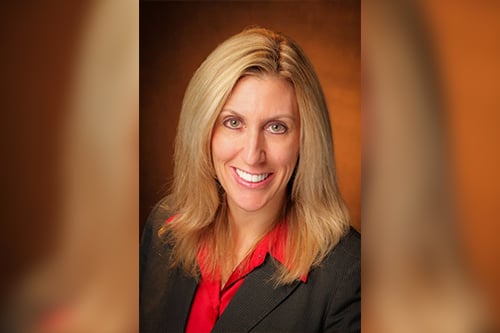

It might not be a huge surprise to learn that a majority of Canadians want to work for companies that take care of their employees. A 2019 RBC Insurance poll found that 80% of working Canadians stated that their overall wellbeing would improve if their employer offered a personalized wellness program customized to their specific wellness and health-related interests and goals. The same poll from RBC also showed that 94% of working Canadians are more likely to work for a company that cares about their overall health and wellbeing.
Some organizations are already implementing programs centred on employees’ long-term health, and are seeing the benefits ripple through their workforce. In November 2019, Allstate Insurance Company of Canada was among five Canadian organizations recognized in the GoodLife Fitness Health & Wellness Leadership Awards. In fact, Allstate took home an award for the third year in a row.
“It is truly an honour for our health and wellness program to be recognized for a third consecutive year,” said Adrianne Sullivan-Campeau (pictured), vice president of people, culture and communications at Allstate Canada. “Having a formal program allows us to create a healthy and safe work environment, and that’s a key component of our employee offering. Overall, we recognize that in order to bring your best selves to work every day, you need to be supported in all aspects of life and we want to make sure that we continue to foster a healthy and safe workplace for our employees.”
Allstate Canada’s healthy workplace strategy is baked into the company’s overall strategic framework, which includes an emphasis on health and lifestyle best practices, as well as a holistic approach across wellness.
“We have a four-pronged wellness approach, which allows us to reach various employee groups depending on what matters to them at that particular time,” said Sullivan-Campeau. “We support across physical, nutritional, financial, and mental, so various employee groups at various times would feel more connected to different aspects of our wellness program, and because it is built into our overall strategic framework, it’s supported from the leadership level down to every employee.”
For example, the company aligned with the Dietitians of Canada campaign during Nutrition Month in March to encourage employees to choose healthy snacks and foster healthy eating habits. Then in August 2019, the health and wellness committee at Allstate launched a healthy potluck day.
Meanwhile, for Mental Health Awareness Week in May, Allstate Canada released an e-learning module, called “Responding Effectively,” aimed at people leaders with the objective of helping them notice common reactions to signs of distress, as well as how they could demonstrate active listening and empathy, and how they could take employees’ lead in navigating confidential conversations.
“When you think about the statistics from the Canadian Mental Health Association, you think about mental illness indirectly affecting all Canadians at some time, through either a family member or friend or colleague,” Sullivan-Campeau told Insurance Business. “Our focus particularly in mental wellness really addresses that need – not just within Allstate, but across Canada – and our employees tell us that they very much value that focus on wellness.”
And with the fierce competition for new talent in the Canadian insurance marketplace, having successful wellness programs can help companies in the sector stand out from the crowd.
“We have our strongest recruitment source of employees through employee referrals, so when employees value a program, they are going to talk about it to their friends and family, and refer people and that’s making us an attractive employer,” explained Sullivan-Campeau. “In terms of our employee value proposition, we have a five-pronged approach, so we look at it from community, diversity, family, flexibility, and opportunity. We want to make sure that we are providing an offering for employees that attracts people to our organization who value that and that’s what our company really stands for.”
